|
Here are some resources from Rev. Marta! Check out the video and find additional resources from Marta's Sunday sermon from 12/17/23 and information are the upcoming podcast, Jesus Has Left the Building.
Last night, I sat on the back patio of a friend and colleague, sipping yummy drinks and eating a slice of pizza. As the sun went down and the mosquitos came out, we chatted about all things church and life. Her wild garden of corn and beans and squash sprawled out among us. She told me that she was working on a "three sisters" garden. Corn, beans, and squash crops are known as the Three Sisters. For centuries these three crops have been the center of Native American agriculture and culinary traditions. It is for a good reason, as these three crops complement each other nutritionally in the garden. My soul became whole in the glow of late summer among sprawling crops.
I’ve always said that I am a big believer in the theological concept called “the priesthood of all believers.” This doctrine asserts that all humans have access to God through Christ. In many ways, this introduced a democratic element in the church's functioning, meaning all Christians were equal: clergy/priests and parishioners. It also means that we are all ministers within a congregational setting, unfolding God’s kin-dom* together. I have seen this happen in many ways over my first six months serving with all of you at Plymouth. In my first week or so, I was introduced to Plymouth’s Stephen Ministers program. The Stephen Minister’s name came from Acts 6:8; the apostles commissioned Stephen to do acts of pastoral care. For Plymouth and many churches, The Stephen Ministers program is trained laypeople that expand the pastor's care by providing quality caring ministry. There is much to say about our Stephen Ministers program and the people at Plymouth that serve in this vital capacity, witnessing and practicing active listening to care receivers at Plymouth. But, more than anything, this program is a beacon to the church that reminds me of what the church is for and what we are in the business of doing. Last night, my colleague said, “I think the church ‘universal’ has forgotten that their role is to provide soul-nurturing.” In other words, our product is about tending to our souls in the way a gardener tends to her crop. Perhaps the church is like the Three Sisters garden, a vital ecosystem that complements each other nutritionally so that our souls are cared for during the winter seasons of life. As a pastor, I began to think of the idea that the church is in the business of soul-nurturing. I am grateful for our Stephen Minister’s program and the work of specially trained volunteers who listen actively and walk with congregants during the darkest periods of life or when the soul simply needs to be nurtured. Marta P.S. To learn more about being a Stephen Minister at Plymouth, visit their page. To request a Stephen Minister at Plymouth, contact me. *Kingdom” suggests a vertical hierarchy and power-over, “kin-dom” suggests a horizontal solidarity and power-with. This past Sunday, I preached on the Parable of the Sower [Matthew 13]. Many of you know this parable, and I have preached it on more than one occasion in different contexts. For this week, I linked the idea of the soil and the seed that we sow to the interconnectedness of all creation.
Many weeks when I preach, I talk with my good friend and colleague, Rev. Dr. Mandy Todd. Mandy is also a co-host with me on the Jesus Has Left the Building, podcast that we co-created during the global pandemic. We obviously love to ‘process’ exciting ideas together. She preaches every week at a Lutheran nursing home in Kansas. This week we discussed this parable, and we both aligned with the idea that all of God’s creation matters. I wanted to share a bit of what she shared with her community: She said, “But for me, the thing that has really stuck with me this week is a conversation we had about the seeds that fell on the path. The parable begins first with seeds that fall on a path, and the birds come and immediately eat them up. If you don’t think too hard, you can just forget about those seeds. The seeds disappeared with the birds who fly away. "But, if you think just a little bit about those seeds, things start to get complicated. Birds are incredibly important to our ecological world, because they spread seeds all around the world through - you guessed it - their poop. They eat seeds, and the seeds pass through their systems. In fact, moving through a bird’s digestive system gives seeds a dose of fertilizer high in nitrogen, which can help fuel growth. Some plants, like the wild cherry and bird cherry have evolved their dispersal strategies to become dependent on birds, requiring that their seeds pass through a bird’s digestive system to prepare for germination. Huh, that seed on the path takes on a different meaning when you think about it for a second.” Following my sermon on Sunday, I passed out a few tiny bottles of poppy seeds. My hope was that these seeds would be a ritual or even a prayer to all of creation and to the justice issue of climate change. I sowed my seeds into the feeding trough planter on my front porch and into the rocks onto the side of my house as a prayer for climate change justice.
Lastly, if you have an interest in climate change and planting seeds [no matter where they may fall] consider joining the Climate Action Ministry Team. This team is working on the United Church of Christ designation. To learn more about the designation check this out: UCC Creation Justice Link As always, I am available for more conversations! Peace. Marta This past Sunday, I had the privilege of leading worship with Brooklyn McBride, Plymouth’s Director of Christian Formation. I have spent much time thinking about young people in the church, and Brooklyn oversees ministries for young people and their families.
This past Sunday, we led an intentional cross-generational worship service. Cross-generational worship refers to pairings with big age differences or engaging in embodied practices from different generations. In other words, it involves regular interaction, engagement, and discipleship between and across generations. A church service is cross-generational when the congregation shares, works and learns from each other. Most of us can say we agree with cross-generational experiences in theory, but what does that look like in practice? I have learned that this work requires intentionality and a deep interest in generational differences. Here are some things that we did to make last Sunday’s worship service cross-generational:
To listen/watch the worship service and hear Brooklyn’s sermon, click on this link: Sunday's Worship! Marta It’s official! As of last Friday, Roger [my husband] and my youngest daughter, Nina, have joined me at our new home in a lovely neighborhood only a couple of blocks South East of old town Timnath. It’s also official that I passed my “culminating conversation” last week after presenting my Doctor of Ministry project at The Iliff School of Theology. I am officially a Reverend Doctor! I could not be more thrilled and humbled to be an expert in the work that I deeply love. For those of you who are curious, the program that I applied to and have spent the past three and half years in is called Doctor of Ministry in Prophetic Leadership. After the first two years of coursework, students pick a specific area of study and research. I chose to research an intersectional feminist approach to worship. The title of my project is: The Birthing Stool: An Intersectional Feminist Approach to Worship. To all the pastors birthing something new. To all the clergy that want to do something different. To all the churches brave enough to break the mold. This project is for you. I know that I will share pieces of this project with this community over time, but here is a nugget:
The Birthing Stool. This image and metaphor of a birthing stool came from feminist scholar Ada Maria Isasi-Diaz. In Muerista's theological and liturgical understanding, church liturgy requires our whole bodies. The birthing stool is a tool that assists with birthing something brand new. It is a deeply spiritual structure that requires relationship and presence. It is an image used to create something new that can be simultaneously exciting but also deeply uncomfortable. The birthing stool was used before male physicians dominated the delivery room and were tended by a community supporting a child's birth. There was always a community of people surrounding the stool. The midwife, doula, grandmothers, and sisters all tend to the new birth around the stool. I believe that the church can make room for the authentic and lived experiences of intersectional feminism. This work is not individualistic but communal. This work is not perfect, but practiced. This work is necessary and also messy. An intersectional feminist approach to worship will birth something new and incredible within the worshiping community, but it will take the support and care of everyone - like the birthing stool. In the spirit of the birthing stool - communal ministry and practice, [and now that I am officially here!], I welcome invitations to get to know all of you more deeply. I am open to walks and coffee/lunch [really, any food!] or simply an office visit. My door is always open. Marta The liturgical Season of Easter almost always gets overlooked. And that is crazy because it’s the liturgical season when the work of the people is being called to serious action.
To be an Easter People means that our faith in the resurrection must transform the very meaning of our lives, the church we belong to, and the many deaths woven throughout and among us. So, let’s start this 50 days of the season of Easter with candle lighting. It’s a simple and accessible way to begin this journey of transformation. I love candles. I love the slow burn of light that glows. I love scented and unscented candles. I love the metaphor of a guiding light in uncertain terrain. I love the practice and intention of striking a match against the hard cardboard box and the first smell of burnt offering when the wick gets lit. I love that the candle almost always decides how long it burns and that the control is out of my hands. I love that this practice is a prayer for this or that–for me, for you, and for the world. Nevertheless, it’s a great way to begin the journey through the Season of Easter. Mostly, I think that this week is a candle-lighting week for our nation, so I invite you to a ritual in your home. Gather three or four candles (tea candles or taper candles or a Yankee candle) in a central location: dining room table or coffee table. Say these words and light a candle for each:
My Easter People, intention comes first, then action. May your prayers be lifted to God in the Spirit of transformation and deep and abiding love. More than anything, may they guide your intention to DO the work of Easter People. Amen. Marta P.S. If you engage in this practice, I’d love to see the pictures of your lit candles to share in community. You can share them with me using this form. Dear Church,
I already love you. And, it’s not because you are perfect. And, it’s not because I am perfect. I love you because I can tell you love “church” as much as I do. You love eating together and toasting together! You love housing the poor and caring for the sick. I have seen all of this in just a few weeks. This is a letter of gratitude for the radical and love-infused hospitality that you have extended me in the three weeks since I have joined this beloved community. Your hospitality reminds me of Jesus’ words to Mary of Bethany when she accidentally breaks the alabaster oil jar, “Jesus said, 'Leave her alone. Why do you trouble her? She has done a beautiful thing for me.'" Matthew 26:6-13 It reminds me of when the disciples were indigent and Jesus said: “Let the little children come to me, and do not hinder them, for the kingdom of heaven belongs to such as these.” Matthew 19:14 Or when Jesus captures radical hospitality in Luke 14:12-14 when he says: Give a dinner or a banquet, do not invite your friends or your brothers or your relatives or rich neighbors, lest they also invite you in return and you be repaid. Thank you my new friends for your radical hospitality. Your welcome has gone beyond being friendly; it has been a warm welcome, with openness, and authenticity that significantly exceeded my expectations. It has been an intentional hospitality that surprised and delighted me. I have felt like I too belong. In the spirit of radical hospitality let us hang our hats on these three principles: Let us receive the other with revolutionary generosity as Jesus did. Let us offer personal attention, especially to those that often go unnoticed. Listen with the ear of your heart ~ Benedict. And, always follow up. I am grateful, church. I love what may be possible together. I love that hospitality already seems to be in the moral fabric of this community. I love that radical hospitality is in fact a spiritual practice and an opening of the heart for Plymouth UCC. Peace & Love, Marta |
Details
|
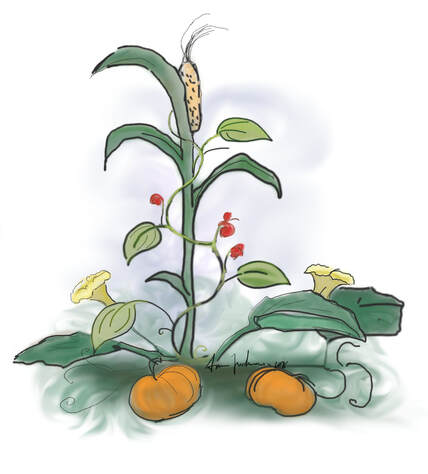
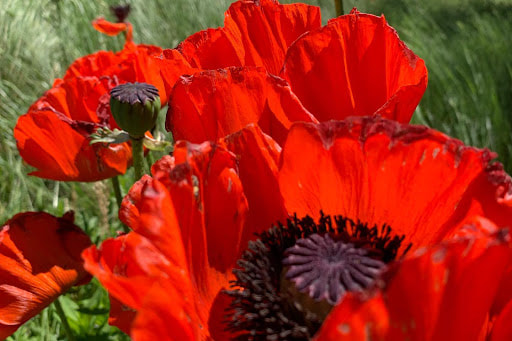
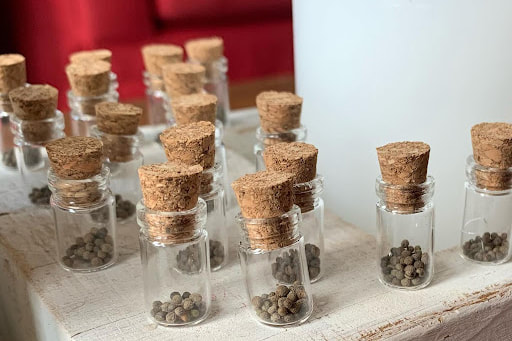
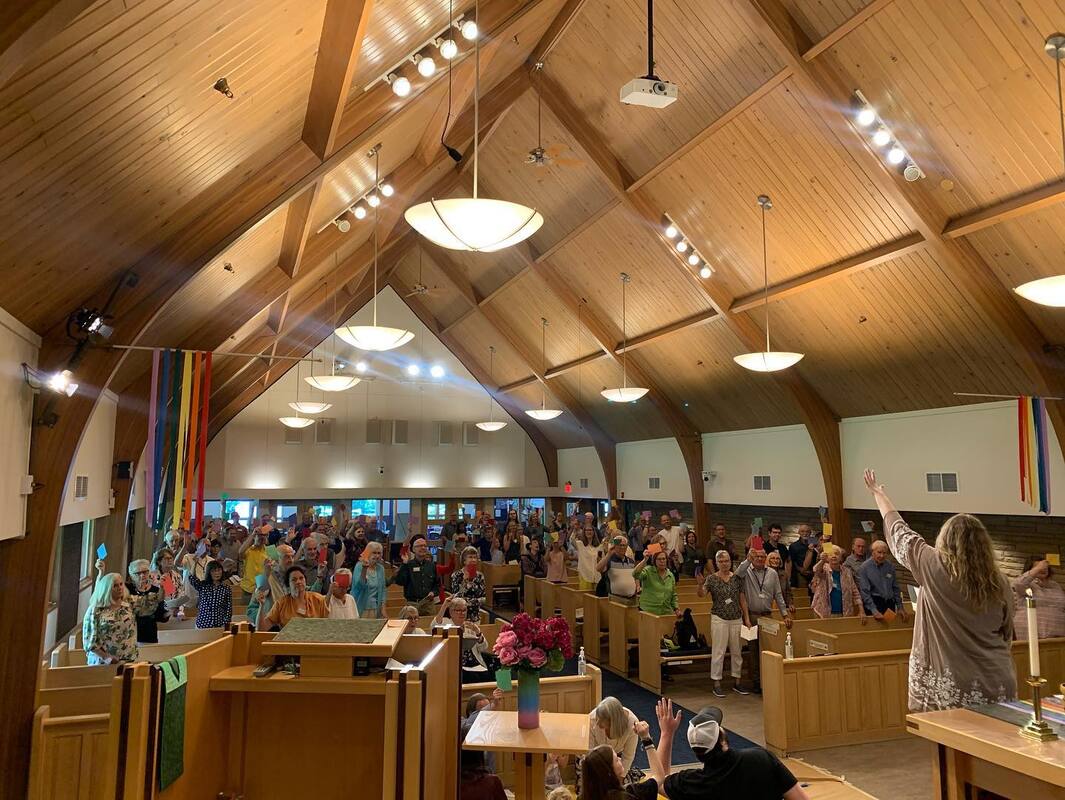
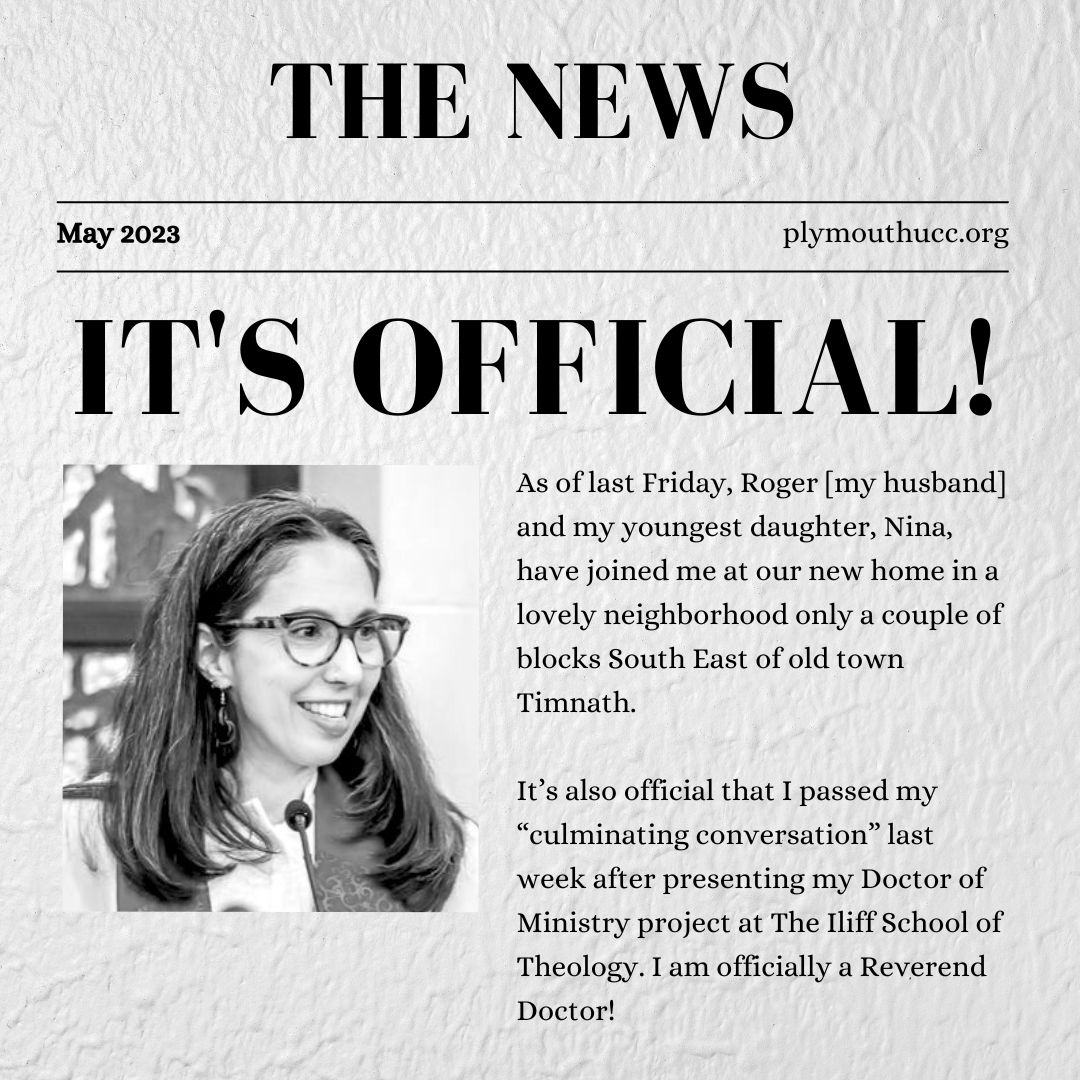
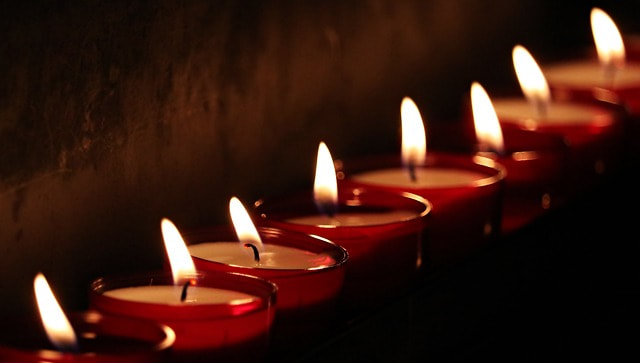

 RSS Feed
RSS Feed